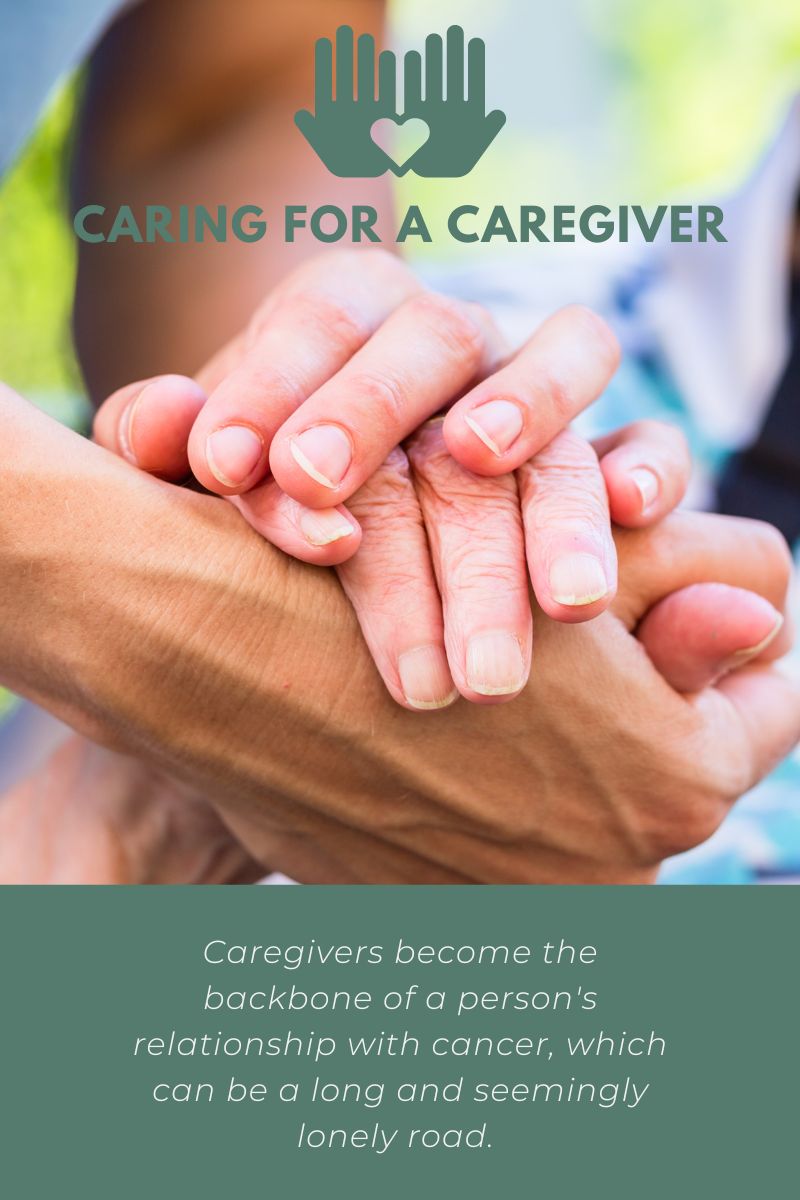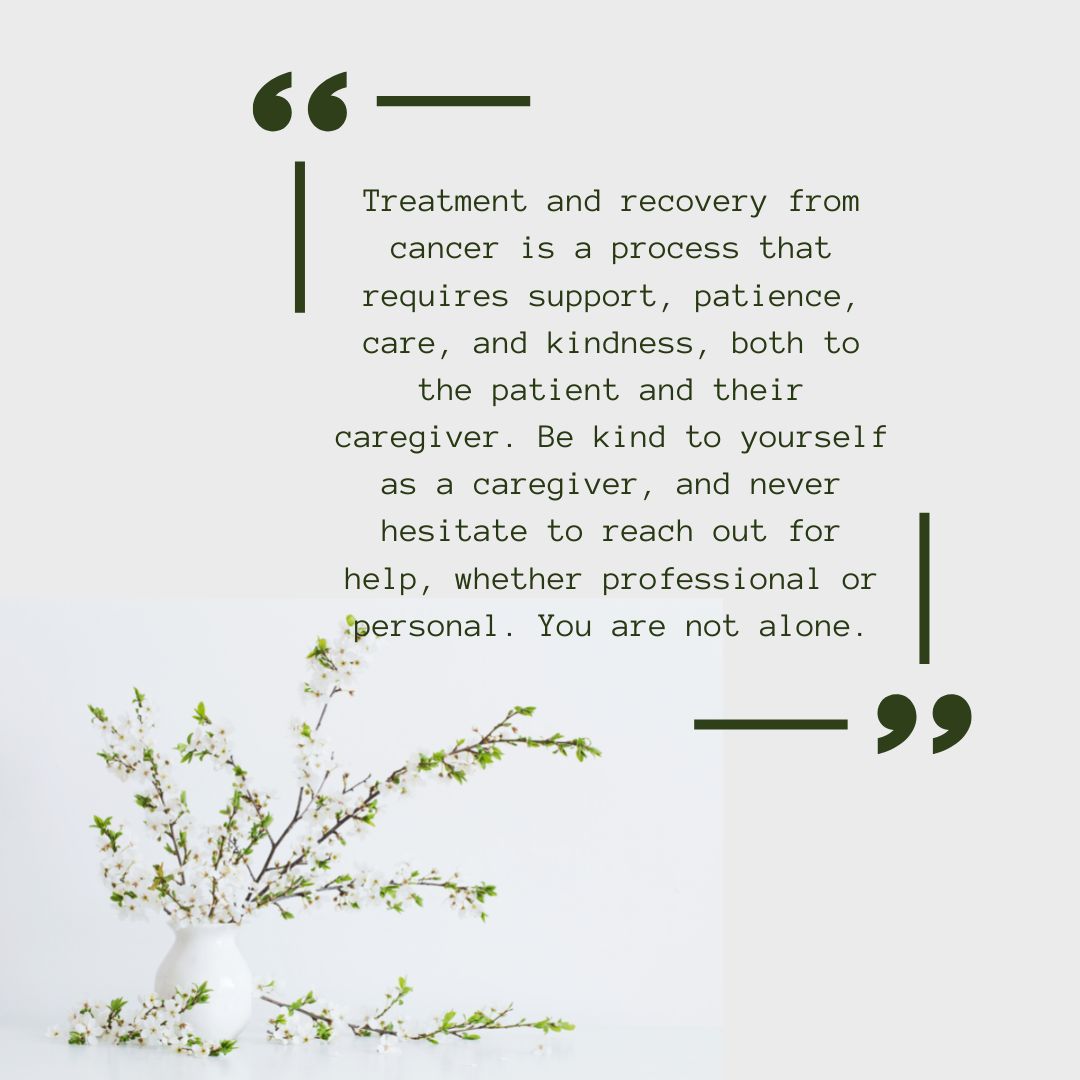Welcome!
Welcome to the new CancerGRACE.org! Explore our fresh look and improved features—take a quick tour to see what’s new.
When test reports come in, and the building anticipation confirms the worst fears with a diagnosis of cancer, it certainly affects the individual the most. However, its ripples are far-reaching; we share it with our parents, family, partners, children or friends, and almost anyone that we can rely on for support.
These individuals become the backbone of one’s journey to fighting the battle with cancer, which can be a long and seemingly lonely road. The presence of a strong support system can make it feel easier. In this journey, the “caregivers”, our loved ones who are supporting us, often go unnoticed in their daily struggle by the doctors, relatives, and even themselves.
To help combat that sense of caregiver fatigue, we are sharing some useful strategies to support a loved one, and in the process, also understand the role and challenges of a caregiver.

If you are assisting someone you love during cancer care, you are a caregiver.
It feels like something natural to do—taking care of someone you love. However, “taking care” comes in different forms and versions during different stages of the journey.
Caregivers can be family members, friends, or anyone who cares for a person with an ailment. Since every situation is different, caregiving will also look different for every case, and there isn’t one way that works best. For example, caregiving may include:
The thought of cancer is frightening, and in the time after diagnosis of a loved one, you may experience a range of different feelings. Some common reactions include:
The above reactions are extremely normal and expected upon hearing a diagnosis. It becomes important to validate our own feelings and approach them without judgment. However, it is also essential to consider the possible challenges caregivers might encounter. Awareness about such challenges helps better prepare and hence mitigate the stress associated with it.
Challenges Faced by Caregivers
The Psychological Consequences of Caregiving
The experience of caregiving varies by each caregiver, hence its consequences also fall under a spectrum. Some caregivers report positive outcomes, while others report negative experiences, and some find themselves in a combination. There is no singular way to experience this process.
Many caregivers are able to find the silver lining in this experience and the following themes have been found to be the most common:
Negative Consequences of Caregiving
On the other end of the spectrum lie the “negative consequences”. It is imperative to understand that the term “negative” does not mean something that shouldn’t be experienced, or should be a cause of shame. Rather, caregiving creates demands that may exceed one’s resources and ultimately cause negative psychological consequences. The aim is to have insight into expected negative outcomes to assist in finding the right source of help.
Fear, hopelessness, guilt, confusion, doubt, anger, and helplessness can take a toll on both the person with cancer and the caregiver. While the focus tends to be on the patient, all of this will affect the caregiver’s physical and mental health, too.
Caregivers can also come to a point where they feel that they’ve failed in some way, which is a natural and expected feeling. However, this acute feeling can be managed at an early stage and improve the overall quality of life.
In this section, we discuss possible measures we can take to support ourselves with the struggles of being a caregiver.
Taking a Break/ Finding the “Me Time”
Caregiving feels like a full-time occupation, but it does not have to be. Caring for one’s self actually equips one to perform the role better.
Most caregivers might hesitate to take a break from their caregiving responsibilities, as they feel guilt for stepping away, even temporarily. However, denying your physical and mental health needs for an extended time will upend one’s identity.
Try to get out of the house and be on your own daily, even if just for a few minutes. This could be as simple as taking a short walk or shopping for food. Some caregivers also work full-time jobs while taking care of their loved one. While this can be a needed break, it can also add stress to the situation. Any activity that also allows you the independence to be just you, no matter how small, may help center yourself and prevent burnout.
Caregivers are also their own individuals who have their own set of needs, wants, and desires. They also have a set amount of resources.
We act as caregivers for people who are often close to us and hence overburden ourselves with responsibilities. Sometimes, we are riddled with guilt and fears that we are not doing our best.
A person can only give so much. After that, you need to replenish. It is important to remember that the inability to give at the moment does not translate to failure.
Drawing boundaries is healthy and asking for help is healthy too. Setting realistic limits on what you can do becomes essential. For instance, if you have a back injury, and your loved one is too big for you to lift, you may be able to help them roll over in bed, but don’t try to lift them alone or catch them if they fall. You may end up seriously injured and become unable to help anyone. This is where expert help is needed; home care nurses or physical therapists can show you how to work safely. They can also help you get special equipment if needed. Your own health and safety must come first if you want to keep helping your loved one.
Finding Support for Yourself
The most striking thing about support is that it helps you to “share”. Share the burden, the responsibilities, the toil. It does not promise to take it away but definitely helps unburden by sharing it. Some possibilities can be:
Be Prepared for Some People Not to Help
When someone has a serious illness such as cancer, friends and family often reach out to help. Sometimes people you don't know very well also want to give you a hand. However, it's important to realize that there are others who may not be able or willing to help you. You may wonder why someone wouldn't offer to help you or your family when you're dealing with so much. Some common reasons are:
If someone isn't giving you the help you need, you may want to talk to them about your expectations, particularly if the relationship is an integral part of your life. They may very well be open to discussing the issue and allow you to see their point of view. Or, you can choose to let it go. No matter your choice, dealing with the issue can prevent resentment and stress from building up.
Feelings are not inherently “good” or “bad”; they simply exist and need to be understood. The first step to understanding your feelings is to know that they’re normal, and, more importantly, valid.
Some feelings that may come and go are:
Experiencing these feelings just means that you are human, and you need the same attention and care that you as a caregiver extend to others around you.
You may feel too busy or worried about your loved one to think about your own health. Yet it’s common for caregivers to have sleep problems, headaches, and anxiety, along with other physical changes.
Did you have health problems before you became a caregiver? If so, now it’s even more important to take care of yourself. Also, adding extra stressors to your life can cause new health problems. Be sure to tell your doctor if you notice any new changes in your body. Keep up with your own health needs.
Try to:
Cancer causes many caregivers to look at life in new ways.
They think about the purpose of life, and often focus on what they value most. You and your loved one may question why cancer has come into your lives. You may long for things to be like they were before the disease. You may also see good things that come out of it, such as it bringing you closer. It’s normal to see illness in both good and bad ways.
 A lot of fears and insecurities that arise after the diagnosis may be centered around the challenges associated with decision-making and the well-being of our partner suffering from cancer. Sometimes having an honest and empathetic conversation can help appease fears. Some suggestions are:
A lot of fears and insecurities that arise after the diagnosis may be centered around the challenges associated with decision-making and the well-being of our partner suffering from cancer. Sometimes having an honest and empathetic conversation can help appease fears. Some suggestions are:
Treatment and recovery from cancer is a process that requires support, patience, care, and kindness, both to the patient and their caregiver. Be kind to yourself as a caregiver, and never hesitate to reach out for help, whether professional or personal. You are not alone.
*Sharika Amin is a licensed Clinical Psychologist working in Kashmir with Doctors Without Borders.
Sharika received her MPhil in Clinical Psychology at Dr. Ram Manohar Lohia Hospital (PGIMER) and Masters in Clinical Counseling and Applied Psychology at Delhi University. We thank Sharika for volunteering and helping the GRACE community!
Please feel free to offer comments and raise questions in our
discussion forums.
4487.jpg?itok=LooO274g)
Welcome to the new CancerGRACE.org! Explore our fresh look and improved features—take a quick tour to see what’s new.
Hello Natalieaster, Welcome to Grace. I hope your stay with us is short, but we are always here to answer, listen and share.
Since your doctor didn't seem too worried...